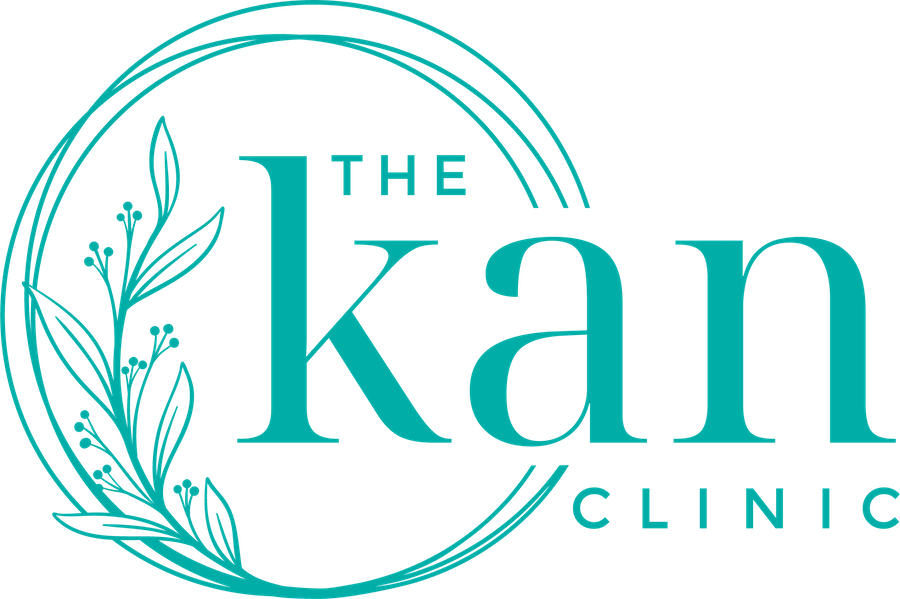The essential role of a balanced diet in menstrual health: A focus on macronutrients
The menstrual cycle is particularly sensitive to our food intake. Nutrition plays a huge role in supporting and maintaining a healthy menstrual cycle and overall reproductive health, but today I want to focus on ‘macronutrients’, or carbohydrates, protein, and fats. In simple terms, macronutrients are the nutrients that the human body requires in the largest quantities.
Let’s start with carbohydrates!
Carbohydrates have a massive impact on the menstrual cycle due to their influence of the hypothalamic-pituitary-ovarian axis or the HPO axis. This axis regulates the entire reproductive system, and carbohydrates help kick things off by triggering the release of a hormone called gonadotropin-releasing hormone from the hypothalamus in the brain. Subsequently, luteinizing hormone and follicle stimulating hormone are then released from the anterior pituitary, a gland at the base of the brain. Collectively, these three hormones orchestrate the menstrual cycle and promote the synthesis of oestrogen and progesterone within the ovaries. And without adequate carbohydrates, this axis basically shuts down and can lead to conditions including hypothalamic amenorrhoea - the absence of a period, irregular periods, loss of bone density, mood disturbances, and sleep disturbances.
Carbohydrates also impact the action of insulin, a hormone secreted by the pancreas which regulates blood sugar. Blood sugar in and of itself impacts hormones, and stable insulin levels are essential for appropriate levels of oestrogen, progesterone, and testosterone.
And finally, we can’t talk about the impact of carbohydrates on the menstrual cycle without bringing up the thyroid. This gland is considered the ‘master regulator’ of various processes within the body including, no surprises, the menstrual cycle! An inadequate carbohydrate intake impairs the production of thyroid hormones and this leads to imbalances of other hormones including prolactin, insulin, oestrogen, and progesterone.
Healthy sources of carbohydrates to support the menstrual cycle include whole grains like brown rice and oats, sweet potatoes, legumes, pumpkin, quinoa, fruit, millet, and buckwheat.
Now protein: the building block
Protein is made up of molecules called amino acids which are essential for the production of hormones including follicle stimulating hormone, oestrogen, progesterone, testosterone, and thyroid hormones. Another hormone that protein influences is insulin, which we discussed briefly above but the relationship between protein and insulin is pretty important when we’re talking about healthy menstruation. Protein essentially allows insulin to do its job properly such as maintaining stable blood sugar levels and improving insulin sensitivity (how effectively our cells respond to insulin).
And interestingly, protein plays a big role in ensuring hormones like oestrogen are balanced. Amino acids are vital for liver detoxification pathways which are how the body eliminates excess hormones and hormonal waste.
Sources of protein include animal proteins like chicken, fish, beef, lamb, and eggs, legumes, nuts and seeds, quinoa, full-fat dairy, and oats.
Fats: the backbone
I want to start by saying that sex hormones like oestrogen, progesterone, and testosterone are synthesised from cholesterol. Without adequate cholesterol - from foods like eggs, high-quality animal proteins, and full-fat dairy - we can’t make sex hormones. And of course other types of fat, including poly-unsaturated fatty acids, have been shown to support healthy hormone levels and thus menstruation by supporting the synthesis of sex hormones and reducing the risk of anovulation.
Dietary fats also impact menstruation due to their role in mediating inflammatory pathways. This has an impact on ovulation and menstruation, but also conditions like period pain, heavy periods, and PMS.
Dietary fats come in a few forms, and some of my favourite sources of each include:
Omega-3 poly-unsaturated fats: fatty fish such as wild-caught salmon and sardines, walnuts, chia seeds, and flaxseeds.
Monounsaturated fats: extra virgin olive oil, avocado, nuts and seeds including almonds, pumpkin seeds, cashews, sesame seeds, and pecans.
Saturated fats: high-quality meat, full-fat dairy, coconut oil, eggs
But of course, the very nature of naturopathy recognises that everybody is different and has different needs! It’s always a great idea to work directly alongside a qualified naturopath to help identify your specific needs. This is especially important for those of you with things like PCOS, endometriosis, PMS, and absent or difficult periods. For individualised support, you can book in with one of our naturopaths here.
